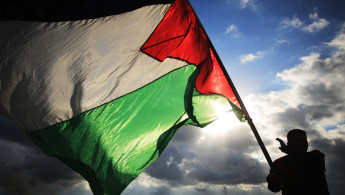Palestinians face uncertainty as Israeli annexation looms and financial hardship persists
A freeze on public sector hiring in the Palestinian Authority, a large employer in the West Bank, is also now in place, with a financial crisis and looming annexation cited as contributing factors.
N Khalil, a 39-year-old single mother and resident of the southern West Bank, was about to start a marketing position at Palestine TV, a government-owned media outlet. But her training at the TV station's headquarters was put on hold in February, and then suspended once lockdown was lifted.
"They told me they could not continue the training because they cannot hire under the shadow of the economic crisis," Khalil told The New Arab. "And they want to wait for the issue of annexation; they don't know where the country is heading, they don't know where the [Palestinian] Authority is going."
Provocative discourse by Israeli Prime Minister Benjamin Netanyahu and his coalition partners on annexation has escalated tensions. The full scope of the potential move is yet unknown, but Israel's right-wing are hoping to annex the Jordan Valley, all Israeli settlement blocs, and even the Ibrahimi Mosque in the heart of the city of Hebron.
 |
The Palestinian economy, heavily reliant on relations with Israel and foreign aid, was never in good shape |  |
Furious over Israel's annexation plans, the Palestinian Authority stated it would reconsider its commitments to Israel under the Oslo Accords, should annexation, whether in part or whole, proceed.
On 11 June, the Palestinian Ministry of Finance announced that it was pulling out of a financial deal agreed upon a month earlier with the Israeli finance ministry after the PA leadership decided "to absolve itself from all agreements and understandings with Israel."
At the height of the lockdown measures, the PA and Israel struck an agreement where the latter agreed to lend the PA the equivalent of $230.1 million (at 1 percent interest) to make up for lost revenue as the economy shut down. Israel is keen to sustain the PA and does not want a food rebellion in the West Bank.
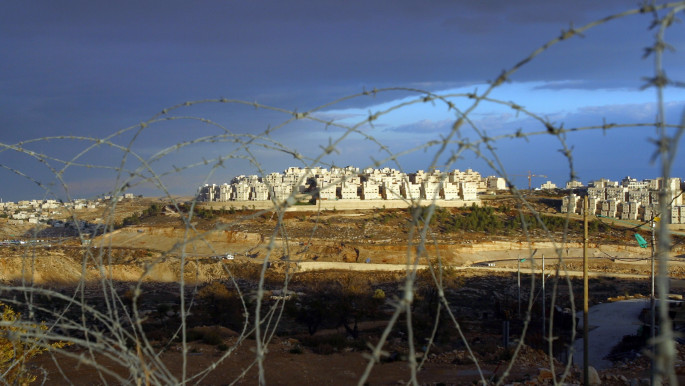 |
|
| Read more: How will the EU respond to Israel's West Bank annexation plans? |
The PA's decision to end the agreement coincided with a deficit of $248.2 million for the month of May. PA revenues declined by 75 percent to just $68 million. The average monthly revenue, according to the finance ministry, is around $273.2 million. This steep decline is owed to the economic fallout from the Covid-19 pandemic.
"We have refused to receive the clearance money and have not received any amount from the deal signed with the Israeli finance ministry," the PA statement said. "The clearance money is ours, and we refuse it to become a matter for political blackmail."
Untimely or not, it has deepened the financial crisis of the PA, leaving thousands of government employees without pay.
"No dealing with the Paris agreement," senior Fatah leader Jibril Rajoub told The New Arab at a press conference in Ramallah, referring to the protocol on economic relations established in the 1993 Oslo Accords.
"We want to reshape everything, we want to lay a foundation for a new form of relations [with Israel]," Rajoub added.
The clearance money is worth some $158.2 million a month and is nearly 58 percent of the PA's income. It comes from the value-added tax, customs, and taxes from Palestinian workers in Israel, all of which Israel collects on behalf of the PA at a charge of 3 percent interest, before transferring it, often after delays and conditions.
 |
Economists predict the gross national income will shrink by 37 percent if lockdown measures are reinstated in the occupied Palestinian territory |  |
Pulling out of the financial deal isn't the only step the PA is taking towards the goal of disengaging with Israel. Halting security coordination is another measure that was announced, although there is no evidence suggesting it has been followed through on.
The PA's response indicates a determined intent to change the status quo created by the Oslo Accords that govern relations between Israel and the PLO. This new course involves negotiating a new agreement with Israel but only under the auspices of the Middle East Quartet, a UN body set up in 2002 consisting of the UN, the European Union, the United States and Russia.
"At this moment the world is pressuring Abu Mazen [Mahmoud Abbas] to sit with the Americans, but we only talk with the Quartet, and there is no yielding on a Palestinian state on the June 4 borders," Nabil Abu Rudeineh, a longtime adviser to Mahmoud Abbas and currently vice PM in Mohammad Shtayyeh's government, told a group of reporters in Ramallah.
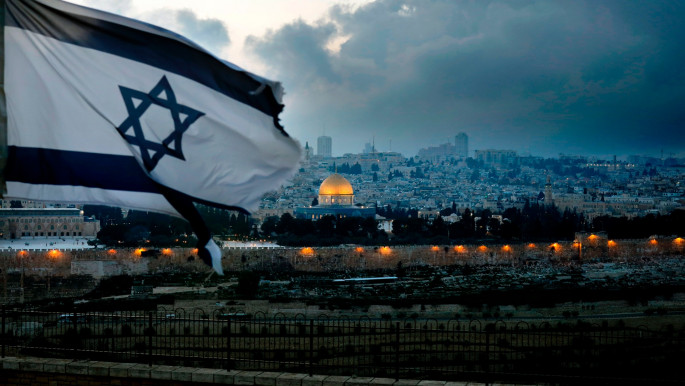 |
|
| Read more: The day after annexation: Israel, Palestine and the one-state reality |
Economists predict the gross national income will shrink by 37 percent if lockdown measures are reinstated in the occupied Palestinian territory.
"It is not only the issue of the clearance money," Raja Khalidi of The Palestine Economic Policy Research Institute told The New Arab.
"Today there is a damaged private sector with a segment that hasn't come back to work, and the government is handcuffed and cannot provide relief," he added.
A standstill in tourism has also left thousands of Palestinians who are dependent on the industry without an income. The Palestinian Central Bureau of Statistics estimates that more than 21,000 Palestinians work in the tourism industry, while thousands more benefit from the influx of tourists indirectly. In 2019, a record 3.5 million tourists visited the occupied West Bank.
 |
The full scope of annexation is yet unknown, but Israel's right-wing is hoping to annex the Jordan Valley and all settlement blocs |  |
"I work in olive wood, the Christian work which depends on tourism and tourists," Tarek Jubran, 45, from Beit Sahour said. Tarek started as an olive wood craftsman from a young age and has had the same employer in neighbouring Beit Jala for the past 12 years.
"Since the day the corona[virus] started, three months ago approximately, tourism stopped, and factories stopped."
The majority of wood craftsmen in the Bethlehem area go to work in small establishments that don't offer benefits. Suddenly they found themselves without employment. Tarek and his wife have five children, the eldest is 15.
"You know the situation in the West bank. We have no labour office to give us even one-third of a salary or a day's worth of work per week, nothing," Tarek lamented.
In the face of a continued halt to tourism, Tarek went to the Israeli Civil Administration office, a division of the Israeli army which ultimately controls the West Bank, and obtained a permit to work in Israel.
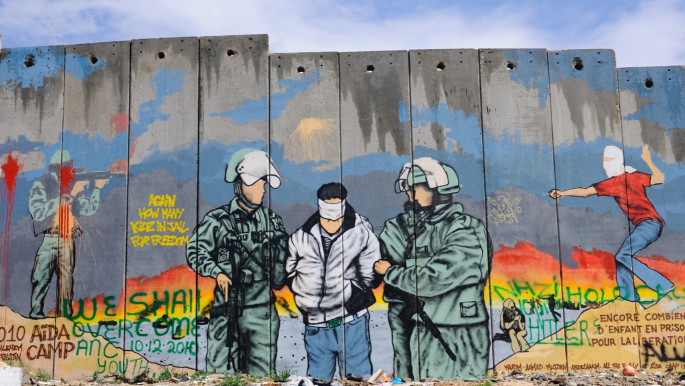 |
|
| Read more: Will the Palestinian Authority really cut ties with Israel? |
"I've never worked in Israel before, but I'm going even if I earn $40 a day, even if I have to sleep in Tel Aviv I would go. I want to live, I don't care."
Mohammad Shtayyeh's government has high ratings from the Palestinian public on its efforts to contain the spread of the coronavirus pandemic. But the economy has been damaged, and something has to be done to help people cope with the economic fallout from Covid-19.
"I believe the government is doing all it can although I stress that what it can do is very limited or nothing at all," said Raja Khalidi. "The only weapon for such a crisis is money, and for this government, money is the thing most missing."
As lockdown measures begin to ease, Shtayyeh made an urgent request to the Palestine Monetary Authority (PMA) to resuscitate the Palestinian economy. Azzam el-Shawa, the head of the PMA, announced a $300 million stimulus measure to aid small businesses with low-interest loans.
The loans would come at only 3 percent interest and would be open to medium, small and micro-businesses which, according to the PMA, comprise 98 percent of Palestinian businesses. The loans, the PMA said, would be made available to businesses via financial institutions within a matter of days.
Out of concern that the loan program might be diverted to benefit big businesses, the PMA emphasised it would directly oversee the loan applications to ensure adherence to eligibility.
The bulk of the stimulus money would come in part from the deposits the banks are required to keep under the PMA's regulations. The rest of the amount would be sought from lending institutions and donors.
 |
The only weapon for such a crisis is money, and for this government, money is the thing most missing |  |
"The amount will be supplemented by obtaining soft loans from institutions such as the Islamic Development Bank and some Arab funds, and the European Union," the PMA told The New Arab.
But banks, which reported a net profit of over $197 million in 2018, have procrastinated.
"A three percent interest loan does not take into account credit risk considerations," a source told The New Arab. "It's a non-starter," a bank CEO was heard saying about the plan. Fears of a second wave of infections are another factor restraining lending.
In addition, banks operating in the occupied Palestinian territories are already under Israeli government pressure to end their role as a medium for the disbursement of salaries paid to Palestinian prisoners or their families by the PA.
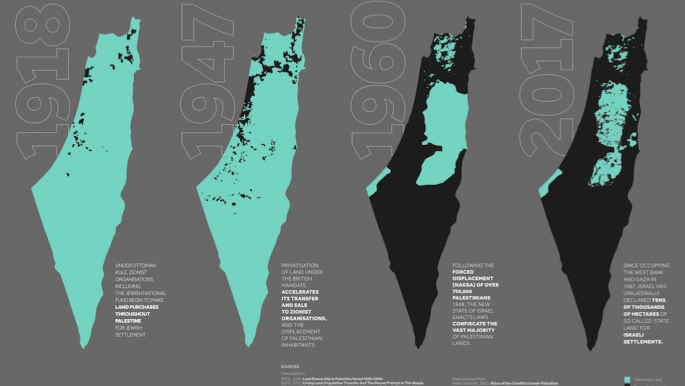 |
|
| Click to enlarge |
If the banks continue disbursing funds, Israel has threatened there will be consequences, but there is also pressure from the Palestinian public. When one of the banks complied with the Israeli restrictions, for example, angry protesters threw firebombs at one of its branches.
On 4 June, Benny Gantz, the Israeli defence minister and alternate PM, decided to backtrack on the threat to sanction banks out of fear it would destabilise the West Bank. The order was suspended (albeit for a period of 45 days only).
In the occupied West Bank, the economic fallout from Covid-19 has also damaged the private sector. However, declining government revenues and, consequently spending, is making matters much worse for millions of Palestinians.
"The economy is important, but it is not my concern," Rajoub told The New Arab when asked if the PA has an economic plan for when Israel annexes parts of the West Bank.
"We are people who want freedom and independence, so we have to endure [hardship]."
Ibrahim Husseini is an independent Palestinian journalist based in Jerusalem
Follow him on Twitter: @husseiniibrahim
